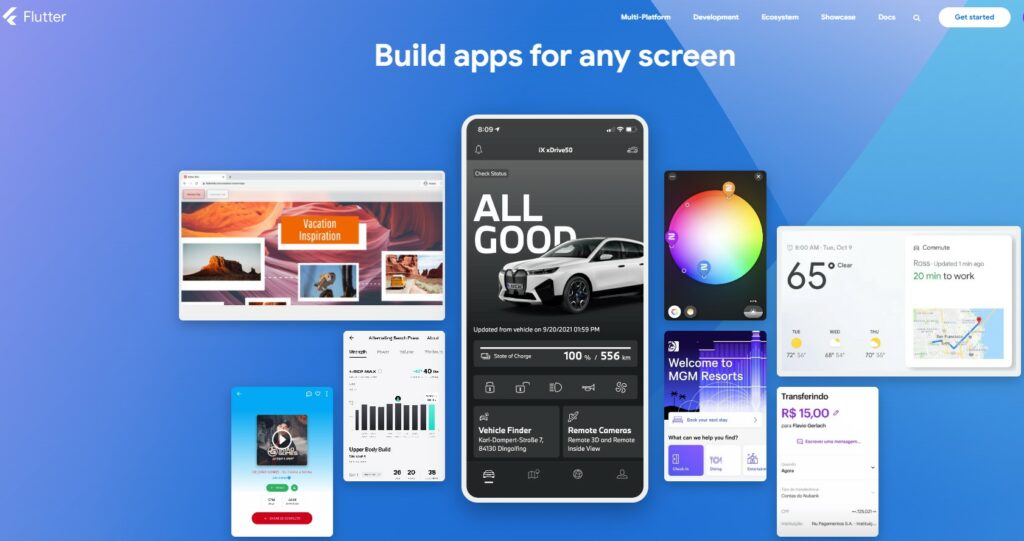
The demand for mobile applications is rising every year. Countless companies invest in creating a mobile apps to facilitate their customers. Whether you virtually connect with someone, book a seat for a movie, or book a ride, all you need to do is take your smartphone out and use the respective app. A smartphone owner uses around ten apps on average every day . You are losing out on many potential customers if you don’t have an app for your business. Thanks to innovative mobile applications, you have just about everything at your fingertips.
In this article, we’ll take a look at some of the top mobile application development frameworks. We’ll discuss what each framework is best suited for and how you can get started using them. So, if you’re looking to stay ahead of the curve in the world of mobile app development, read on!
A mobile application development framework is basically a set of code libraries that help developers create mobile apps quickly and easily. The great thing about these frameworks is that they take care of a lot of the heavy lifting for you, so you can focus on building the features that are unique to your app.
Another benefit of using a mobile app development framework is that they often come with a lot of built-in features, such as push notifications, analytics, and In-App Purchases (IAP), which can save you a lot of time and money.
There are a ton of different mobile application development frameworks out there, so it’s important to do your research and find one that’s right for your app.
We want to present three significant types of mobile application development frameworks.
These are specific to the operating system of the device you’re using, so if you’re developing for iOS, you’ll use a different framework than if you’re developing for Android. Some popular native app development frameworks include SwiftUI for iOS and Jetpack Compose for Android.
These allow you to develop your app once and then deploy it to multiple platforms. This is an excellent option if you want to reach the broadest possible audience with your app. Some popular cross-platform app development frameworks include React Native, Flutter, and Ionic.
These combine elements of both native and cross-platform mobile application development frameworks. This means you get the best of both worlds: the ability to develop your app once and deploy it to multiple platforms while still being able to take advantage of platform-specific features. Some popular hybrid app development frameworks include Cordova and Electron.
Cross-platform frameworks are gaining popularity because of their several advantages.
Though you’ll find many sites that reveal many phases in mobile application development workflow, we have broken down the process into four phases.

Flutter is a UI toolkit for creating native applications for mobile, desktop, and online platforms, and it was created by Google. A cross-platform mobile app development framework called Flutter uses a single code base to create apps for both iOS and Android.
The framework offers a wide variety of entirely customizable widgets that make it easier to create native applications quickly. Additionally, Flutter’s layered design supports the efficient operation of components and employs the 2D graphics engine Skia for producing aesthetics. It’s excellent for building beautiful, high-quality apps. The downside is that learning can be challenging, and there aren’t as many resources available yet.
Here are a few notable benefits of going for this mobile application development framework.

One of the top mobile application development frameworks most frequently suggested in the dev community is React Native. The Facebook-developed framework is an open-source tool that enables you to construct mobile apps for the iOS and Android operating systems.
Based on JavaScript and React, the React Native framework seeks to create native applications rather than hybrid ones that run in a web view. In addition, it is a framework for cross-platform development that employs a single code base for both iOS and Android applications. Following are a few of the critical advantages of React Native:
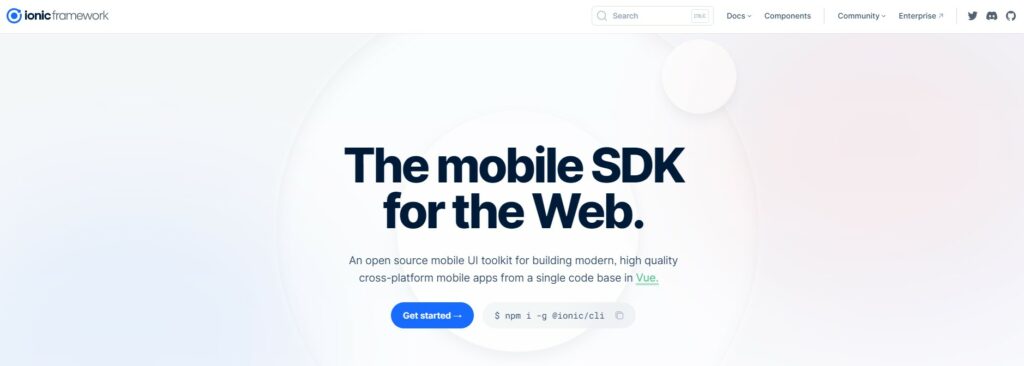
Ionic is an open-source framework that was created in 2013 that enables you to create cross-platform mobile apps using web technologies, including CSS, HTML, and JavaScript. The Ionic framework can be used to create applications that run on iOS, Windows, and Android.
The framework provides a wide range of basic UI elements for an appealing and useful design, including navigation menus, filters, action sheets, forms, and many more. Additionally, Ionic offers a built-in command-line interface and many additional capabilities, like Ionic Native, Cordova-Based App Packages, and more. Significant perks of using Ionic are:
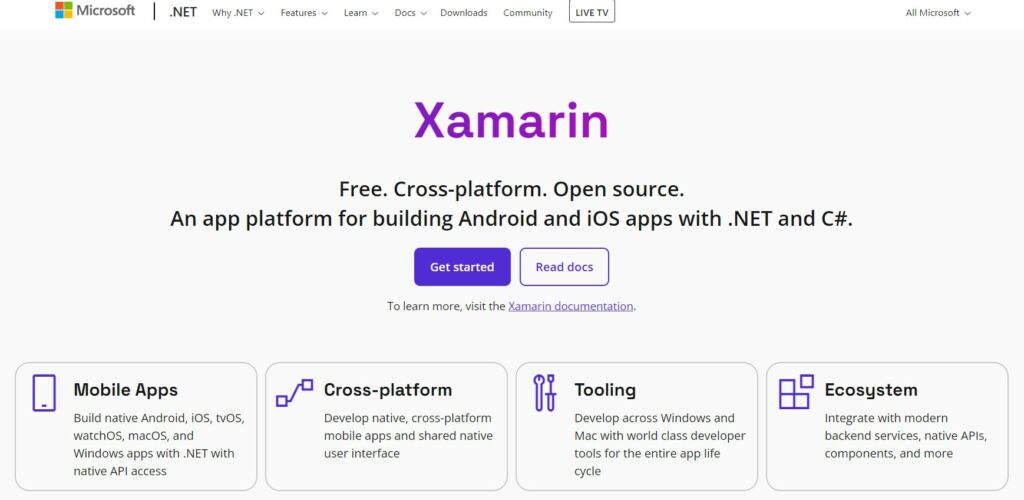
One of the most well-liked open-source frameworks for creating mobile applications is Xamarin. You may create native applications for the iOS, Windows, and Android platforms using the framework that Microsoft bought.
Nearly all the tools and libraries needed to build native applications are included with Xamarin, and you can use these tools to construct engaging user interfaces. In order to improve the efficiency and cost-effectiveness of the development process, Xamarin also enables the functionality of sharing the shared codebase. Here are a few more reasons to choose this mobile application development framework:
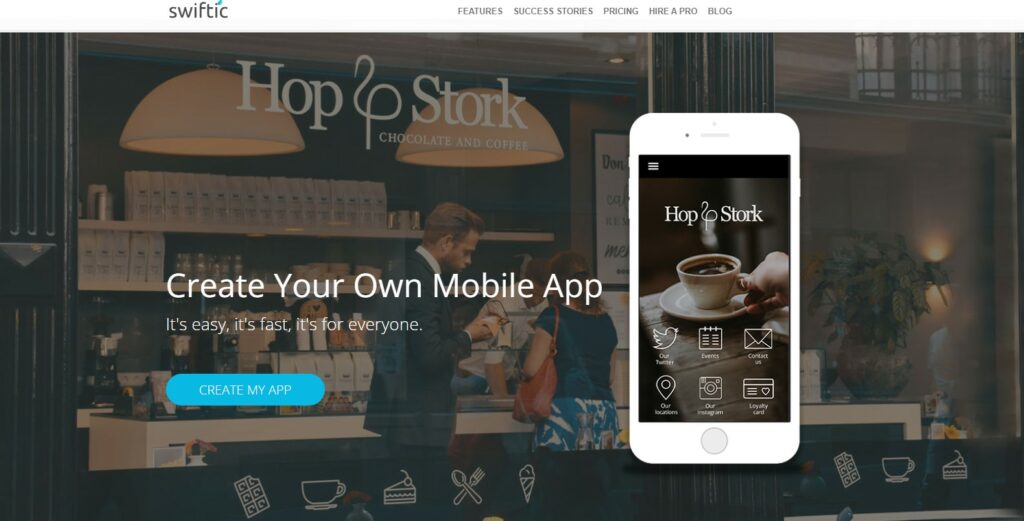
One of the top mobile app development frameworks for the iOS system is Swiftic. It had a UI that was simple to use. Since all of Swiftic’s plans have a 30-day money-back guarantee, using it is an easy decision. Additionally, it includes a second 6-month success guarantee program. A six-month service is free if you don’t see any effects from it. Here are a few more notable features to look out for:
If you have a WordPress website, you are in luck. Creating an app requires time and skill, regardless of how good these mobile application development frameworks are. However, you can easily use the AppExperts WordPress plugin to create your mobile application.
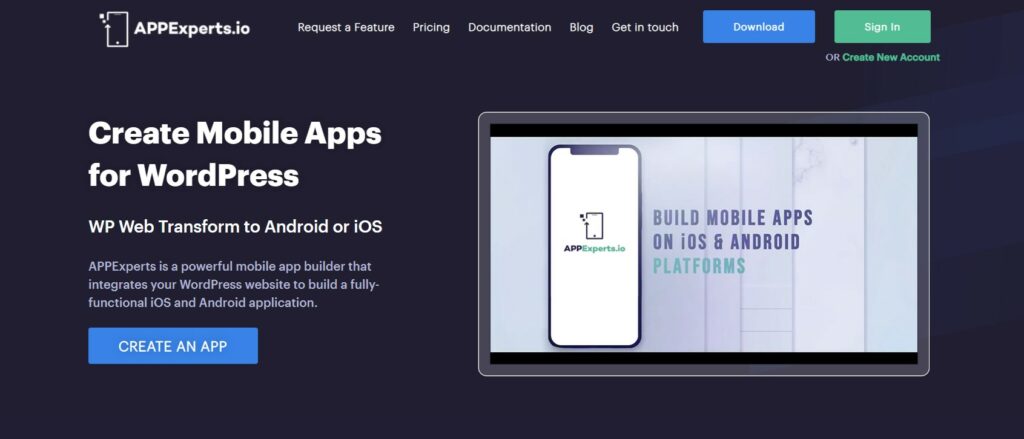
AppExperts is a modern-day application development framework that transforms your WordPress website into a fully functional iOS and Android app. This powerful tool is loaded with amazing features to revolutionize the way your business operates. This WordPress mobile app builder will increase productivity and efficiency to help your business become a competitive brand in your respective industry. In addition, you can use this app for free to test its amazing features. Once you are satisfied, you can subscribe to the Pro version to get access to premium features.
Here are a few features that make this app builder top-notch.
Now that you know the most popular mobile application development frameworks, it’s time to figure out which one is right for your project. Here are a few things to keep in mind when making your decision:
If you’re using object-oriented programming, you’ll want to choose a framework that supports this methodology. On the other hand, if you’re using component-based programming, you’ll want to choose a framework that supports this methodology.
Not all mobile application development frameworks are created equal. Some only support certain languages. So, if you’re using Python, for example, you’ll want to make sure the framework you choose supports Python.
Not all mobile application development frameworks support all platforms. So, if you need to support Android and iOS, for example, you’ll want to make sure the framework you choose supports both platforms.
Different mobile application development frameworks offer different features. So, if you need specific features for your project, make sure the framework you choose offers those features.
We hope you enjoyed this roundup of the top mobile application development frameworks! As you can see, there are a lot of great options out there, and the landscape is constantly changing.
Keep your eye on the trends, and make sure to do your research before choosing a framework for your next project. And if you’re ever feeling overwhelmed, remember: there’s no shame in asking for help from a professional.